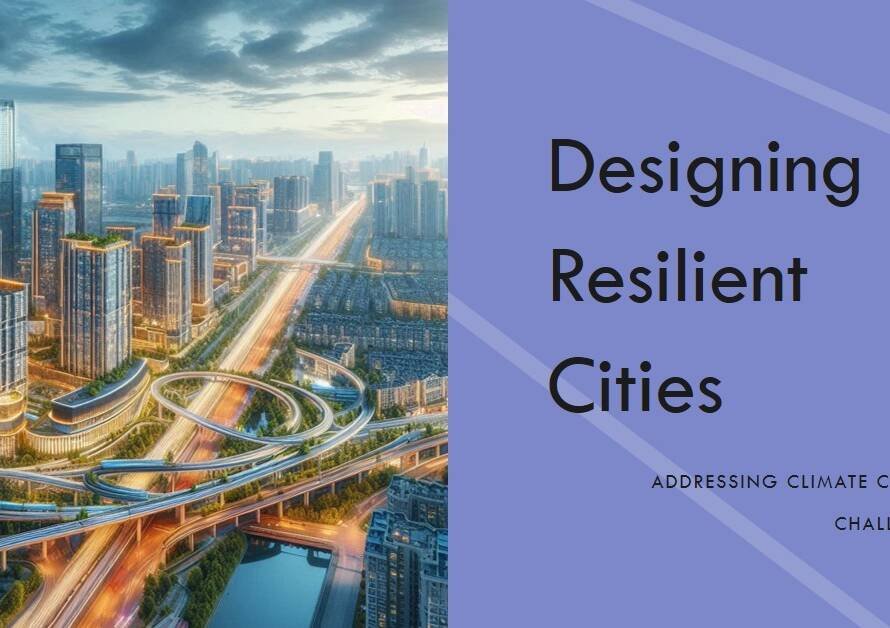
Table of Contents
- Introduction: The Importance of HVAC Systems
- Climate Change and the Growing Need for HVAC Systems:
- Urbanization and Population Growth: Driving HVAC Demand
- Technological Advancements: Shaping the Future of HVAC
- Energy Efficiency and Environmental Regulations:
- Health and Indoor Air Quality: Increasing Awareness
- Renewable Energy Integration: A Sustainable Approach
- Smart Cities and the Role of HVAC Systems:
- Retrofitting and Upgrading Existing Systems:
- The Future of HVAC: Continuous Innovation and Demand
- Conclusion: Adapting to an Ever-Changing Landscape
Introduction: The Importance of HVAC Systems
Heating, Ventilation, and Air Conditioning (HVAC) systems play a crucial role in maintaining comfortable and healthy indoor environments. They regulate temperature, humidity, and air quality, making them essential for residential, commercial, and industrial settings. As we progress into an era of advanced technology and environmental consciousness, the question arises: will HVAC systems always be in demand? This blog explores the factors influencing the future demand for HVAC systems and examines the trends and innovations shaping the industry.
Climate Change and the Growing Need for HVAC Systems:
Climate change is one of the most significant factors affecting the demand for HVAC systems. With global temperatures rising, the need for effective cooling systems is increasing. Extreme weather conditions, such as heatwaves and cold snaps, are becoming more frequent, making HVAC systems indispensable for maintaining indoor comfort and safety.
Moreover, climate change is not just about rising temperatures. It also brings about unpredictable weather patterns, requiring HVAC systems that can adapt to varying conditions. This adaptability is crucial for ensuring that buildings remain habitable and efficient throughout the year.
Urbanization and Population Growth: Driving HVAC Demand
Urbanization and population growth are other critical factors driving the demand for HVAC systems. As more people move to cities, the construction of residential and commercial buildings increases, leading to a higher need for HVAC installations. In densely populated urban areas, HVAC systems are essential for maintaining air quality and providing a comfortable living environment.
Additionally, the growing middle class in developing countries is boosting the demand for HVAC systems. As incomes rise, more people can afford air conditioning and heating, further driving market growth. This trend is particularly evident in countries like China and India, where rapid urbanization and economic development are creating substantial opportunities for the HVAC industry.
Technological Advancements: Shaping the Future of HVAC
Technological advancements are revolutionizing the HVAC industry, leading to more efficient, sustainable, and intelligent systems. Innovations such as smart thermostats, advanced sensors, and automated controls are enhancing the performance and energy efficiency of HVAC systems. These technologies not only improve comfort but also reduce energy consumption and operational costs.
Furthermore, the integration of Internet of Things (IoT) technology in HVAC systems is enabling real-time monitoring and predictive maintenance. This proactive approach helps in identifying potential issues before they become major problems, ensuring continuous and reliable operation. As technology continues to evolve, the demand for advanced HVAC systems is expected to grow.
Energy Efficiency and Environmental Regulations:
Energy efficiency and environmental regulations are playing a significant role in shaping the future demand for HVAC systems. Governments worldwide are implementing stricter regulations to reduce carbon emissions and promote sustainable practices. As a result, there is a growing emphasis on developing HVAC systems that are energy-efficient and environmentally friendly.
Manufacturers are investing in research and development to create systems that comply with these regulations while maintaining high performance. Energy-efficient HVAC systems not only help in reducing operational costs but also contribute to environmental conservation. This shift towards sustainability is expected to drive the demand for advanced HVAC systems in the coming years.
Health and Indoor Air Quality: Increasing Awareness
Health and indoor air quality have become major concerns, especially in the wake of the COVID-19 pandemic. People are now more aware of the importance of maintaining clean and healthy indoor environments. HVAC systems play a vital role in ensuring good indoor air quality by filtering pollutants, allergens, and pathogens.
The demand for HVAC systems with advanced air purification technologies is on the rise. Systems equipped with HEPA filters, UV-C lights, and air ionizers are becoming increasingly popular. As public awareness about indoor air quality continues to grow, the demand for HVAC systems that can provide a healthy indoor environment is expected to increase.
Renewable Energy Integration: A Sustainable Approach
The integration of renewable energy sources with HVAC systems is gaining momentum. Solar-powered HVAC systems, for example, are becoming more common as they offer a sustainable and cost-effective solution. By harnessing renewable energy, these systems reduce dependency on fossil fuels and lower greenhouse gas emissions.
Moreover, the use of geothermal energy for heating and cooling is also on the rise. Geothermal HVAC systems leverage the stable temperature of the earth to provide efficient climate control. As renewable energy technologies become more accessible and affordable, the demand for HVAC systems integrated with renewable energy sources is expected to grow.


Smart Cities and the Role of HVAC Systems:
The concept of smart cities is rapidly gaining traction, and HVAC systems are integral to this vision. Smart cities rely on interconnected systems and data-driven solutions to enhance urban living. In this context, HVAC systems equipped with IoT technology and smart controls play a crucial role in optimizing energy usage and maintaining comfortable indoor environments.
In smart cities, HVAC systems can be integrated with building management systems to provide real-time data on energy consumption and indoor conditions. This integration enables more efficient energy management and improves overall building performance. As cities become smarter, the demand for advanced HVAC systems is likely to increase.
Retrofitting and Upgrading Existing Systems:
Retrofitting and upgrading existing HVAC systems is another trend driving the demand for HVAC solutions. Many buildings, especially older ones, have outdated HVAC systems that are inefficient and costly to operate. Upgrading these systems with modern, energy-efficient alternatives can significantly reduce energy consumption and operational costs.
Moreover, retrofitting projects often involve the integration of advanced technologies such as smart controls and renewable energy sources. This not only improves system performance but also enhances sustainability. The growing awareness of the benefits of retrofitting is expected to drive the demand for HVAC system upgrades in the coming years.
The Future of HVAC: Continuous Innovation and Demand
The future of HVAC systems is marked by continuous innovation and evolving demand. As technology advances and environmental concerns grow, the HVAC industry is poised for significant transformation. Energy efficiency, sustainability, and smart technologies will be at the forefront of this evolution.
Moreover, the increasing focus on health and indoor air quality will drive the demand for HVAC systems with advanced air purification capabilities. The integration of renewable energy sources will further enhance the sustainability of HVAC solutions. In conclusion, while the demand for HVAC systems may evolve, it is likely to remain strong as these systems adapt to meet the changing needs of society.
Conclusion: Adapting to an Ever-Changing Landscape
In summary, HVAC systems will continue to be in demand, driven by factors such as climate change, urbanization, technological advancements, and environmental regulations. The industry’s focus on energy efficiency, sustainability, and health will shape the future of HVAC systems. As we move towards a more connected and environmentally conscious world, HVAC systems will play a crucial role in ensuring comfort, health, and sustainability in indoor environments.


